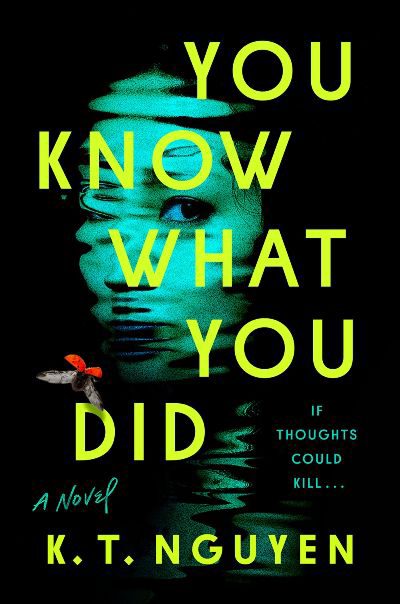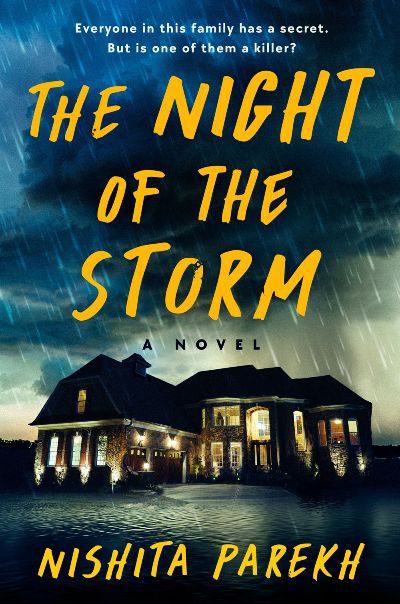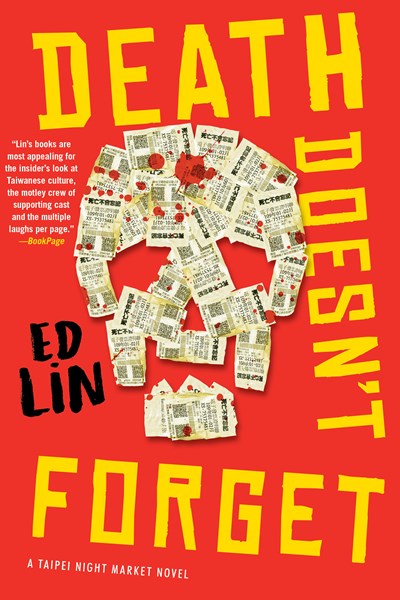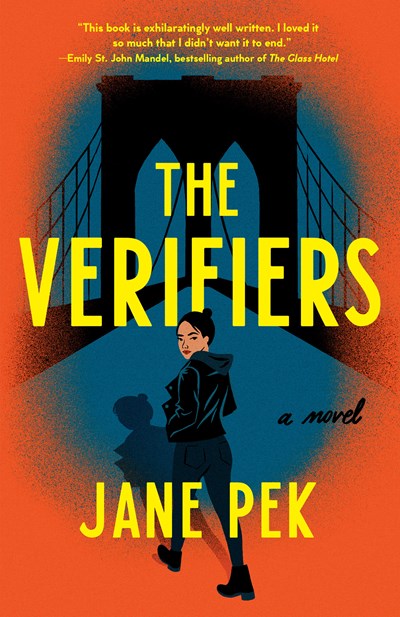“Her mother’s approval was everything, her rejection absolute annihilation.” A daily does of annihilation is Anh Le’s lot as the child of a Vietnamese immigrant mother who is “from the ‘I criticize because I care’ culture.” Today, Mẹ, the mother, lives in the carriage house next to her artist daughter, now called Annie, who’s married with a sullen teen daughter, whom Mẹ calls a whore. After Annie finds Mẹ dead, things start to get even more difficult. Despite her OCD related to cleanliness, Annie must clean out the carriage house where her mother refused to throw out anything, even rotten food. At the same time, she takes on a new commission for her local benefactor, an elderly lady who doesn’t acknowledge Mẹ’s death (“China dolls needn’t have troublesome backstories”) and who promptly goes missing. At first, the police refuse to believe there’s any issue, but as further crimes come to light, they and Annie herself, who’s once again crippled by her compulsions, begin to wonder if she’s to blame. Nguyen delves deep into the trauma caused by war and the generations-spanning destruction it can unleash, but anyone who grew up feeling othered will recognize themselves here. A debut to remember, and what a gripping ending.
Asian American
The scene: Hurricane Harvey hitting affluent Sugar Land, TX, in 2017. Readers will fear the worst, knowing how bad the storm became, but Jia Shah feels she’ll be safe at her sister Seema’s sprawling, ostentatious house. Her brother-in-law, who luckily knows everything, assures all that nothing can happen to his house. Misogyny’R’Us mother-in-law and overbearing sister notwithstanding, Jia believes that once she and her son ride out the storm—and her family’s endless comments about her dire fate as a divorcee—they can get back to life as they knew it. Then Jia notices that the neighborhood seems curiously empty. Except, that is, for a neighbor who stares in the window. Soon things become far more than just creepy as the bodies start to pile up. Debut author Parekh builds tension wonderfully as the storms outside and inside the house threaten to wipe out everything Jia holds dear; she also excels at provoking exasperation at the backbiting family’s antics while crammed into an inescapable nightmare. For those who like locked-room and closed-circle dramas.
Edgar Award-winning Hirahara’s first novel in this series, Clark and Division, was a New York Times Best Mystery Novel of 2021, among many other accolades; this follow-up will please fans with more thoughtful, poignant, and historically accurate investigations of Japanese American life after World War II.
After leaving the Manzanar camp in the first book and moving to Chicago, nurse’s aide Aki Nakasone and her parents have returned to California, where they prospered before being imprisoned, and where her father and others desperately hope to reclaim their land and businesses. Aki’s husband, Art, gets work at the Rafu Shimponewspaper (where Hirahara has worked), but his after-work drinking with other journalists leaves Aki feeling she saw more of him when he was in the army. She’s distant from her parents, too, despite sharing their home, with Hirahara portraying the generational difference as part of the estrangement that is the central theme of the book. Her characters raised in the camps display a kinship that transcends other bonds and leaves them markedly and painfully adrift from their parents.
When Art’s army buddy Babe goes missing after his father’s battered body is found, Aki sets out to find Babe and restore balance to her own unsettled life. This quest sees her explore elements of postwar life such as the competition between returning Japanese and Black Americans for housing and the effects of “shell shock” (PTSD) on a community. A must-read.
A wonderful, moving stand-alone in which Sutanto, author of the Aunties series, is at the absolute top of her game. Sixty-year-old Vera Wong is lonely, although she’d never admit it. A widower, she’s the mother of a lawyer consumed by work—he rarely returns her texts, even though she offers such good advice!— and her days consist of a 6 am brisk walk through San Francisco’s Chinatown—she needs to get her steps in!—then opening her tea shop which, on the best of days, has only one customer. Extraordinarily opinionated, quite a bit eccentric, yet utterly charming, Vera’s voice is captivating. But readers will be completely beguiled after she comes downstairs one morning (she lives above the shop) and discovers a young man lying on the floor. She does call the cops, and tries her very, very best not to disturb the crime scene, but not before prying a flash drive out of the man’s very dead hands. Then the novel takes off as Vera—believing the cops are incapable of solving the crime—assumes the role of detective. In the process, she befriends several young people, including both the victim’s wife and his brother, and while Vera still considers them all to be prime suspects, she can’t help but care for them. Initially this protagonist may seem like the cliché of the dominating Chinese mom. But Vera, it turns out, is pretty damaged herself, much like her new, thirty-something friends. Come for the mystery, but stay for the healing. One of the best cozies I’ve read this year.
We’re back on the streets of Taipei with Jing-nan, the owner of Unknown Pleasures, a night market food stall. Taipei native Jing-nan spent a couple of years at UCLA only to be called home when his parents died, leaving him to run the take-out—a bittersweet turn of events. Here he’s initially accused of two murders: of a small-time criminal who dates his girlfriend’s mother, and of a police captain. With little effort, Jing-nan manages to worm his way out of the accusations, only—along with girlfriend Nancy, her mom, and his food-stall employees—to get sucked into the search for the real criminals. While the mystery, such as it is, chugs along on the back burner, we’re treated to Lin’s always wonderful array of characters, bits of Taiwanese history, and explanations of the current political scene—all without feeling like we’re in school. Lin is definitely a satirist, but this novel is deeply poignant at the same time. While this book can be read on its own, Lin’s books benefit from reading them in series, as so much of the writing is focused on character development.
Heads up! A smart, witty amateur detective has entered the crime fiction galaxy, and you won’t want to miss her. Twenty-five-year-old Claudia Lin, from a Taiwanese-American family, doesn’t live up to anyone’s model-minority expectations. She visits her mother in Queens monthly (not weekly), dates girls (not nice Chinese boys), and has a job (not a career). But her position at Veracity, a sort of detective agency that can suss out the truthfulness of one’s online dates, turns out to be tailor made for her. So much so that when Iris, one of her clients, suddenly disappears, Caroline falls down the rabbit hole in pursuit of her, unearthing shocking information both about online dating companies and the fate of Iris. While solving the mystery is central to the novel, Claudia’s complicated relationships with her mom, Harvard-educated brother, and beautiful, vain sister provide wonderful distractions. For readers who enjoy quirky characters, strong female leads, and love/hate family relationships.






